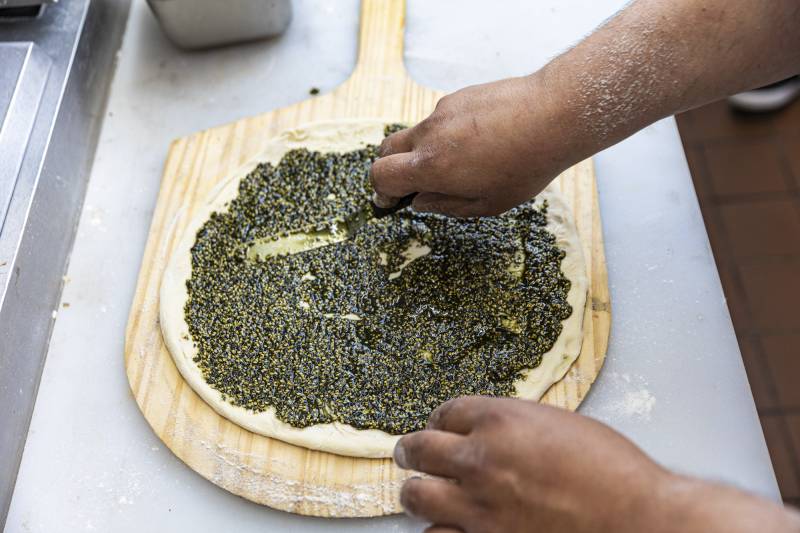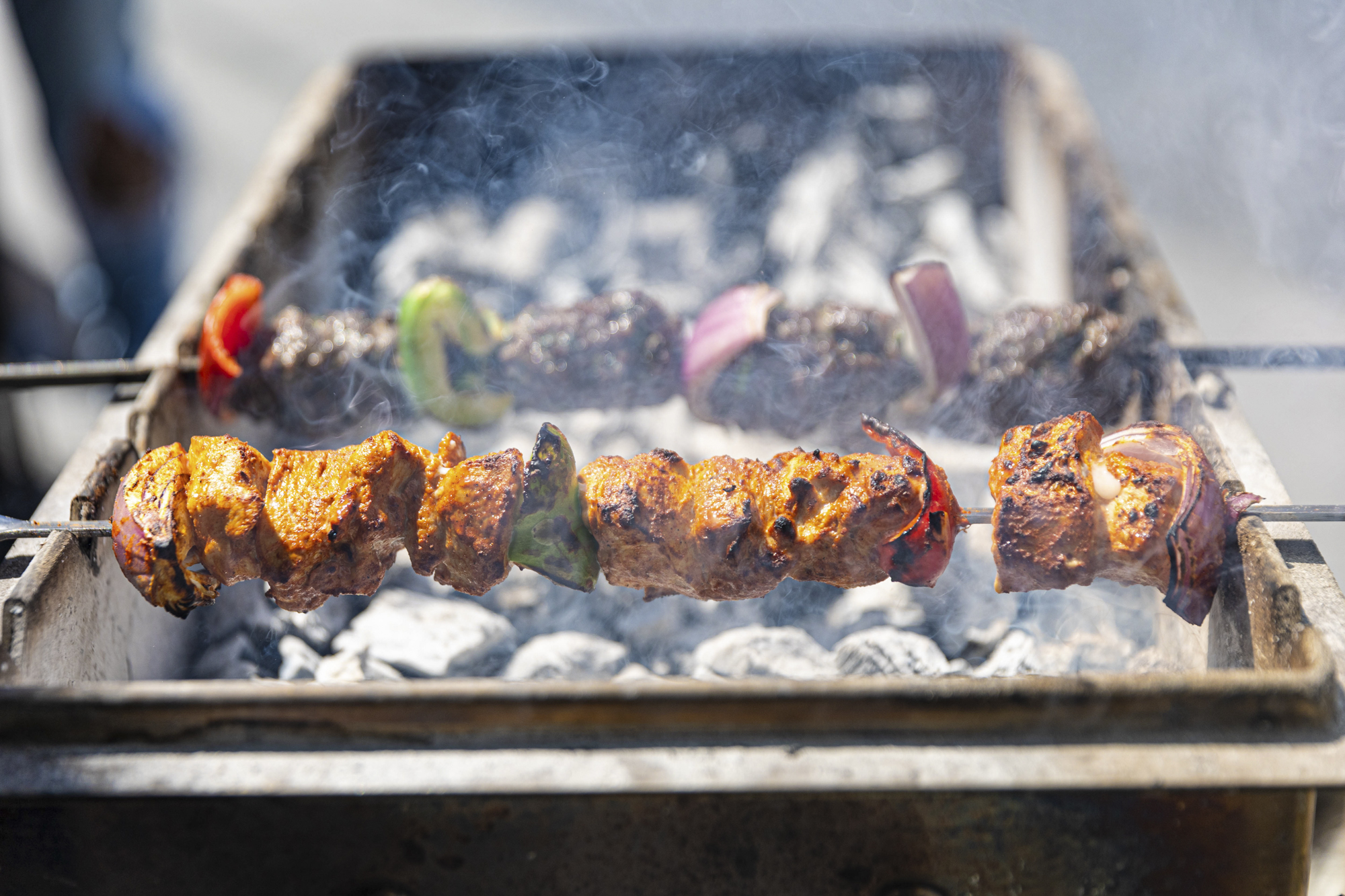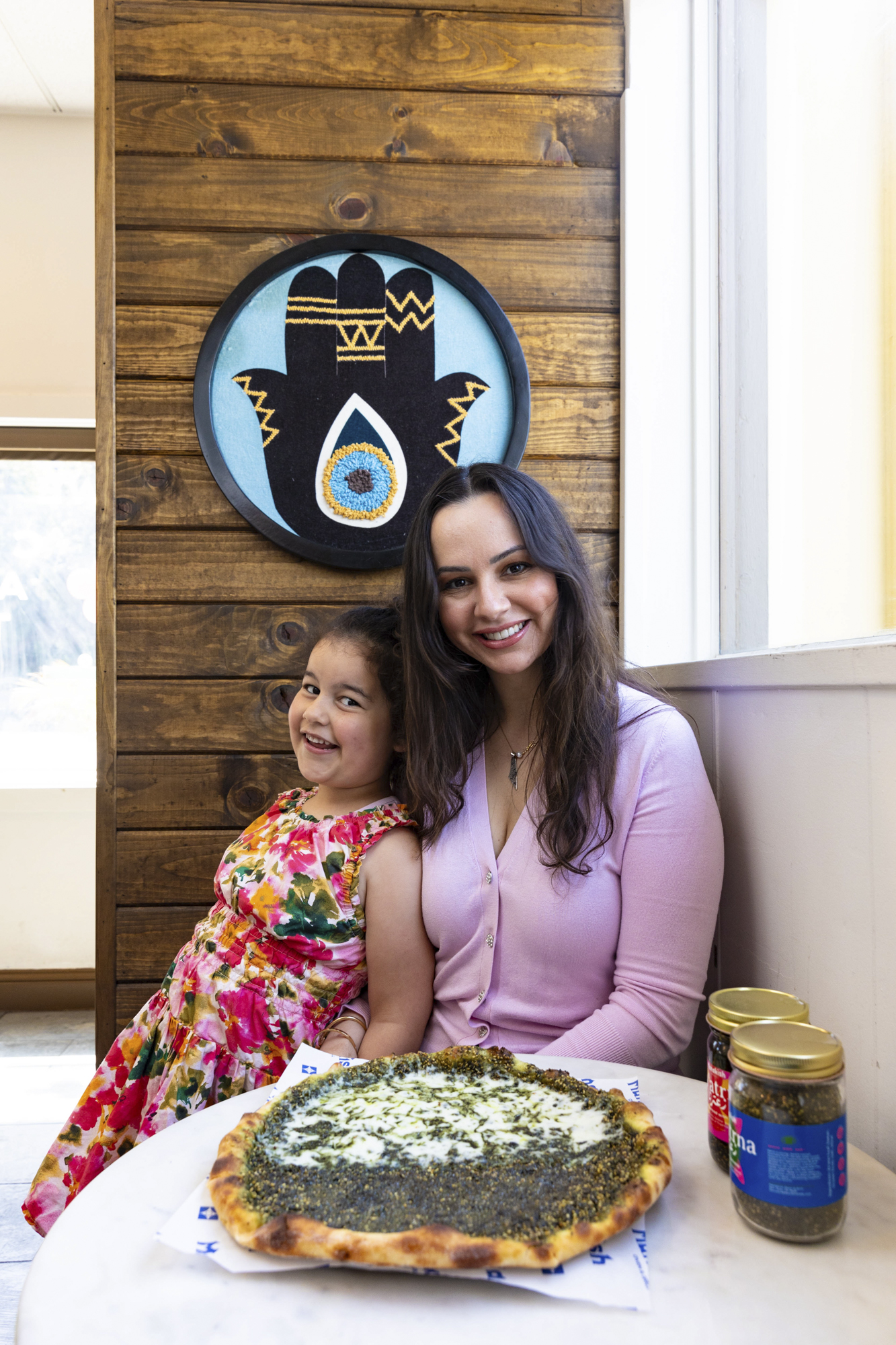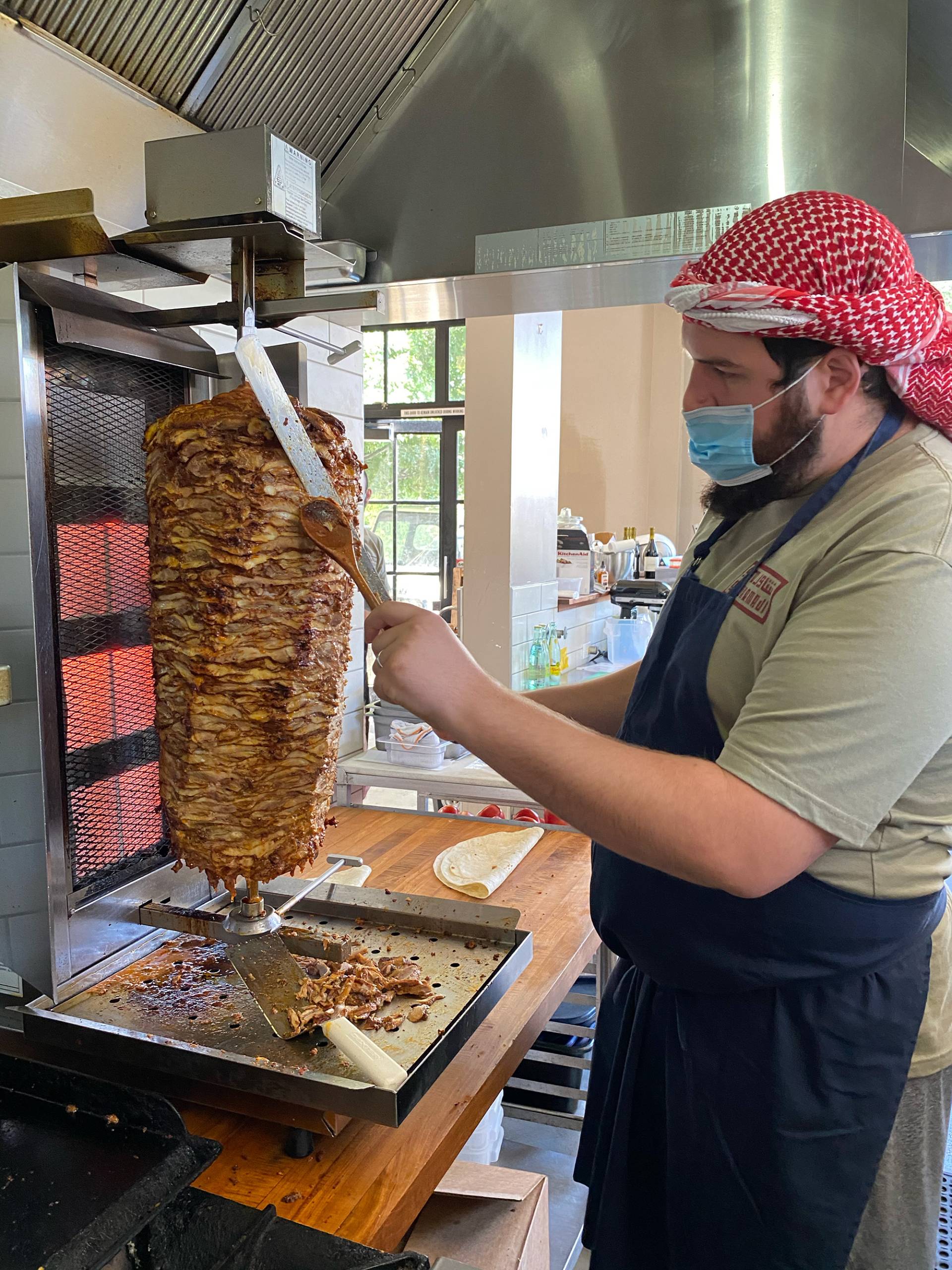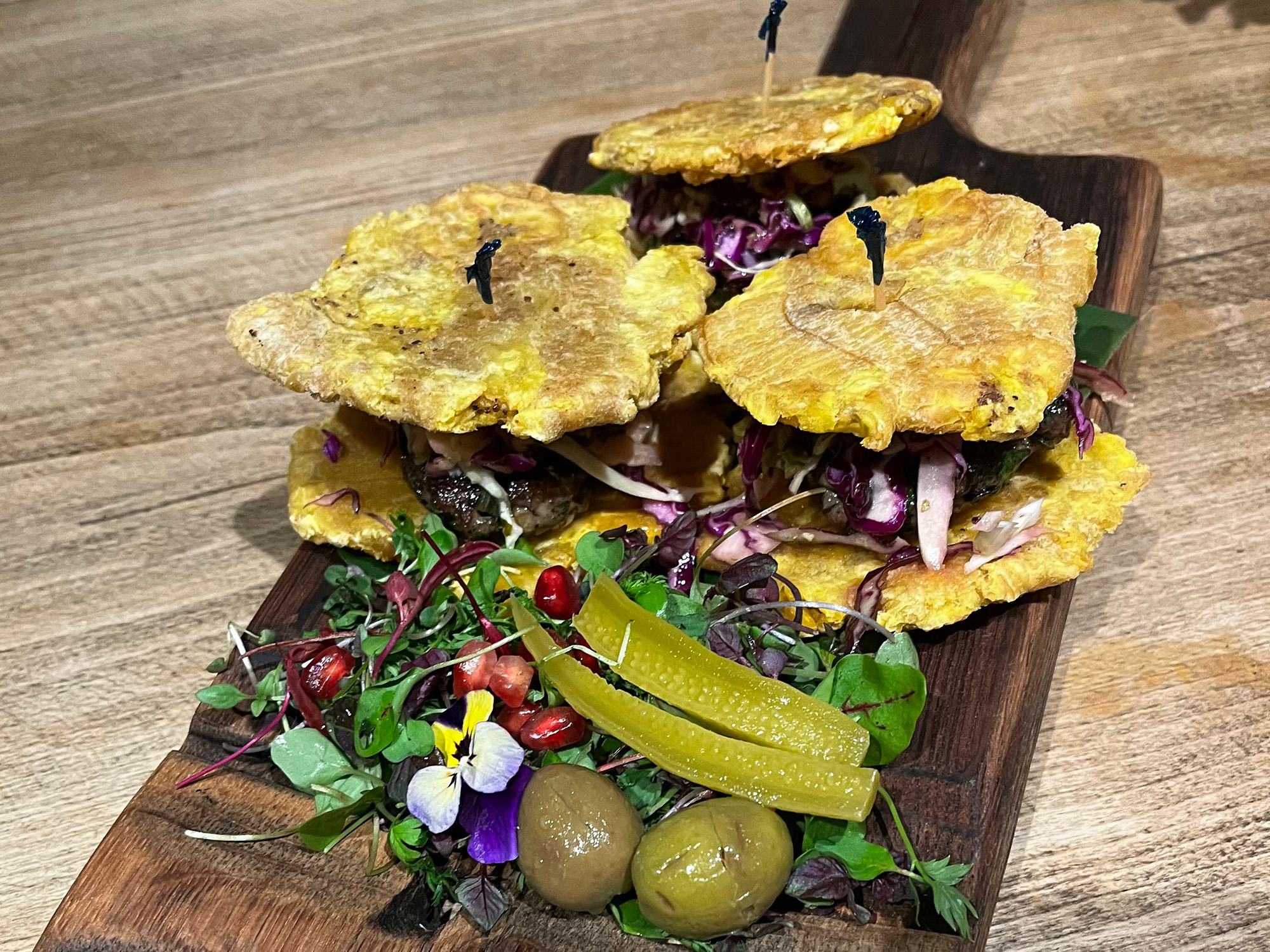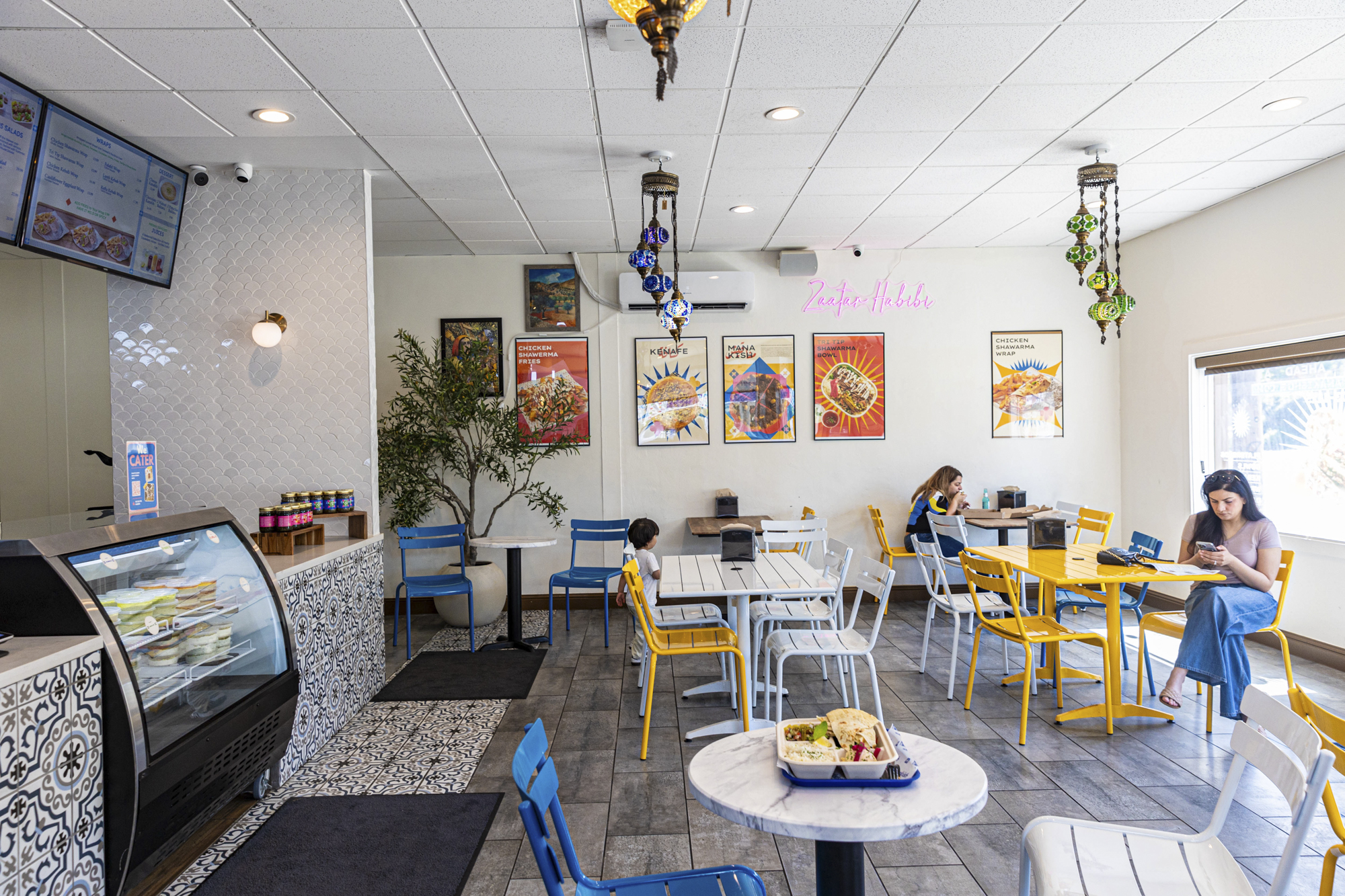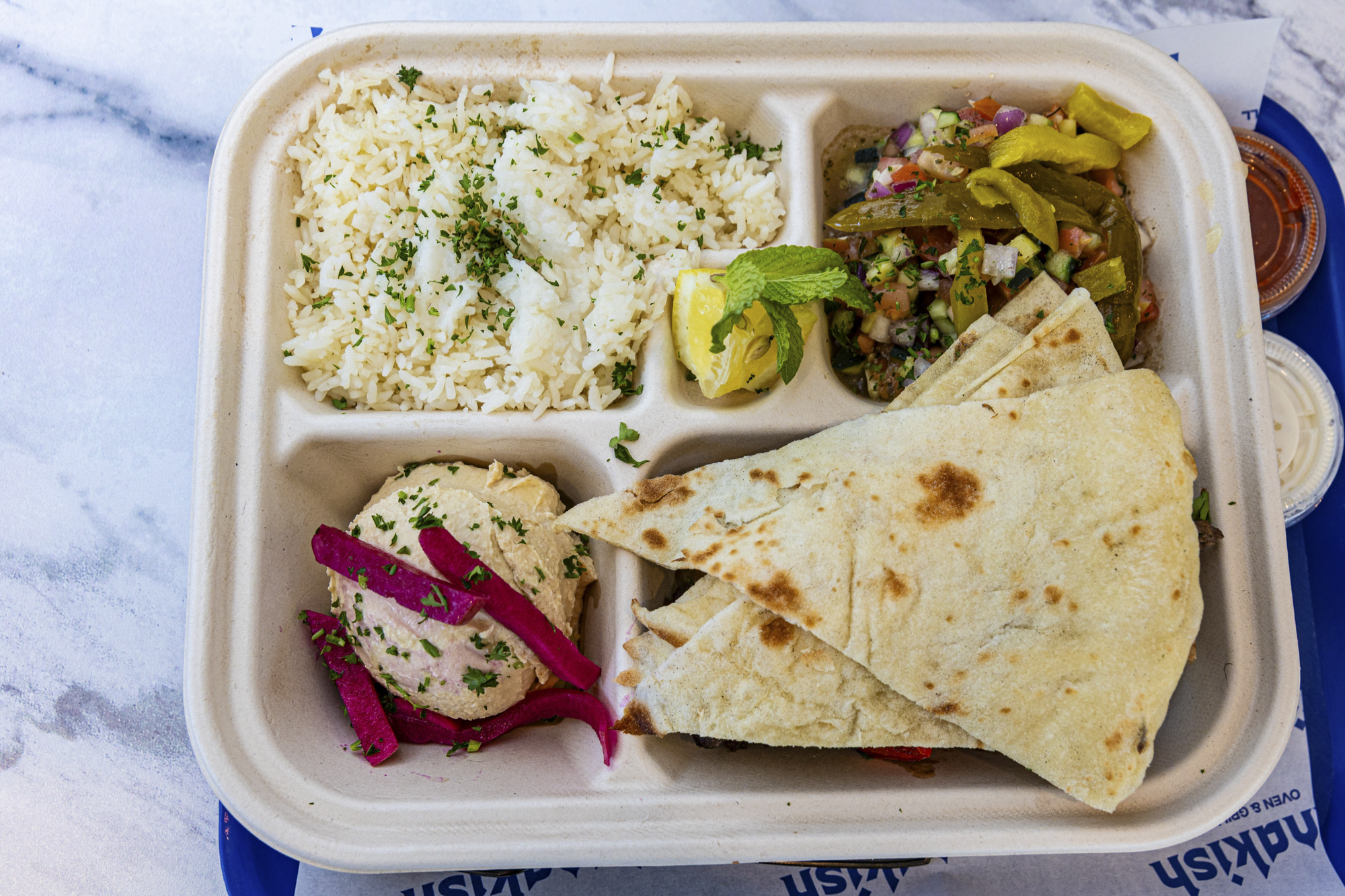Editor’s note: This story is part of KQED’s Youth Takeover. Throughout the week of April 21–25, we’re publishing content by high school students from all over the Bay Area.
A
s soon as I step into the Saba Center parking lot in San Jose, I’m hit by the bustling and lively environment of teens rushing towards concession stands with their friends, hand in hand. The traditional drumming of Muslim nasheeds (spiritual songs) and other Arabic music echoes all around. A line of food trucks sells everything from halal barbecue beef ribs to the trending Dubai chocolate cups. Most of the men all gather in one section of the parking lot, chai in hand, while the women congregate at the colorful hijab and abaya stands.
It’s a late Saturday night in mid-March during the holy month of Ramadan, when Muslims observe “suhoor” each day, eating one pre-dawn meal before they begin their day of fasting — usually alone in their own homes. But for one night each year, HalalFest hosts a giant, all-night, communal suhoor called “Suhoor Fest,” where the Muslim communities from all over the Bay Area can come together with a spirit of joy and laughter. This year, I’ve come with my family to get a taste of the foods trending among Bay Area Muslims.
At one of the festival’s most popular food trucks, Manakish, the earthy fragrance of za’atar fills the air. The truck’s vibrant blue and yellow logo pulls the attention of visitors, and the line is so long it extends to the festival parking lot. Named after a kind of flatbread that’s central to Palestinian food culture, Manakish is one of the many Palestinian food businesses at this year’s Suhoor Fest that are proudly owning their cultural identity. Popular items such as Manakish’s za’atar-and-cheese flatbread and shawarma fries quickly begin to sell out — evidence of how much the flavors of Palestine have taken center stage.
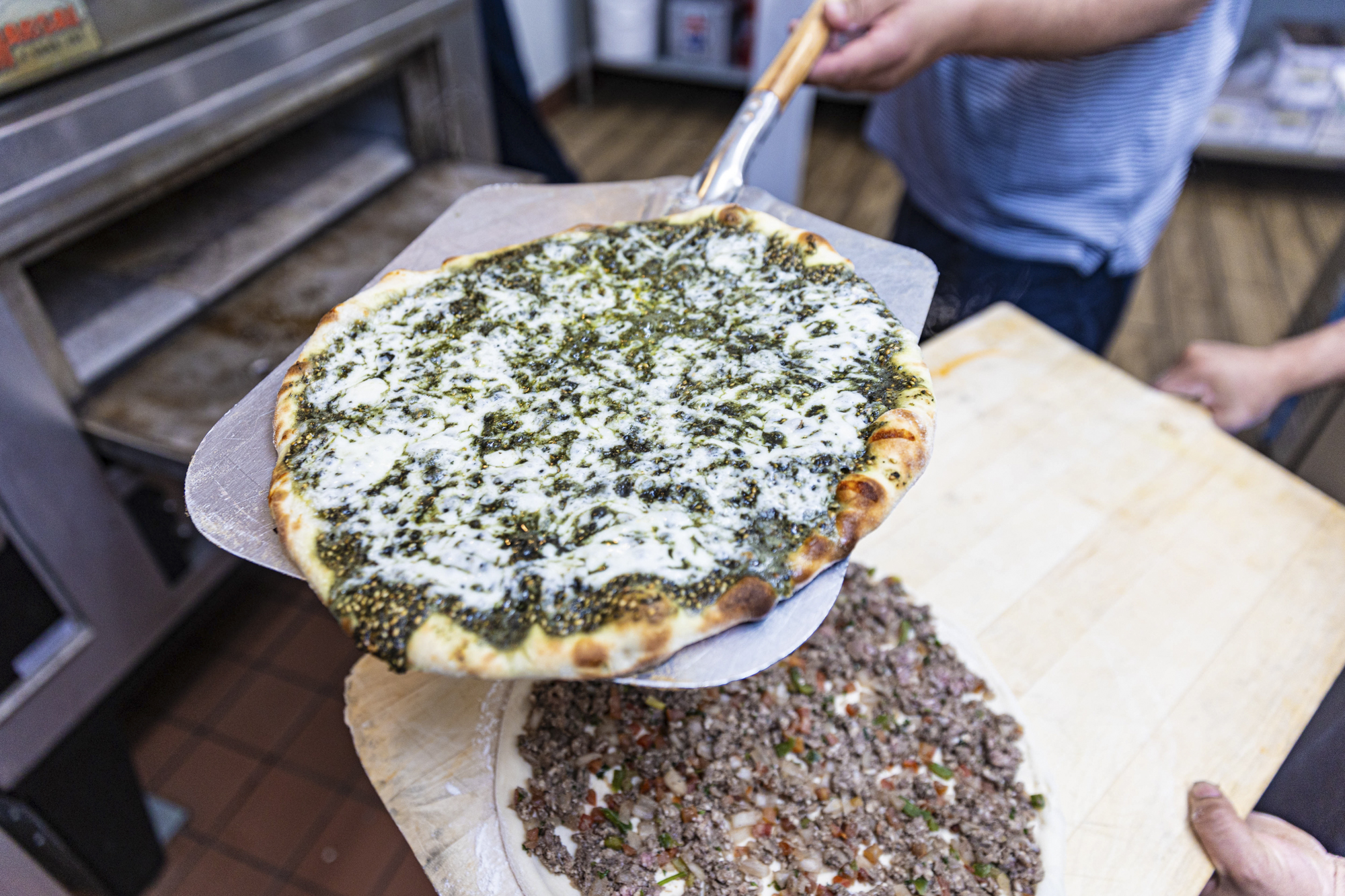
In fact, it appeared that around two-thirds of the stands at Suhoor Fest were either Palestinian-owned or at least showed some visible sign of solidarity with Palestine, like flags or stickers, even if the food wasn’t explicitly Palestinian. All of this comes at a time when Israel’s ongoing assault on Gaza has brought the Palestinian people into the public eye more than ever. To date, more than 51,000 Palestinians, mostly women and children, are reported to have been killed in the aftermath of Hamas’ attack on Israel on October 7, 2023.
